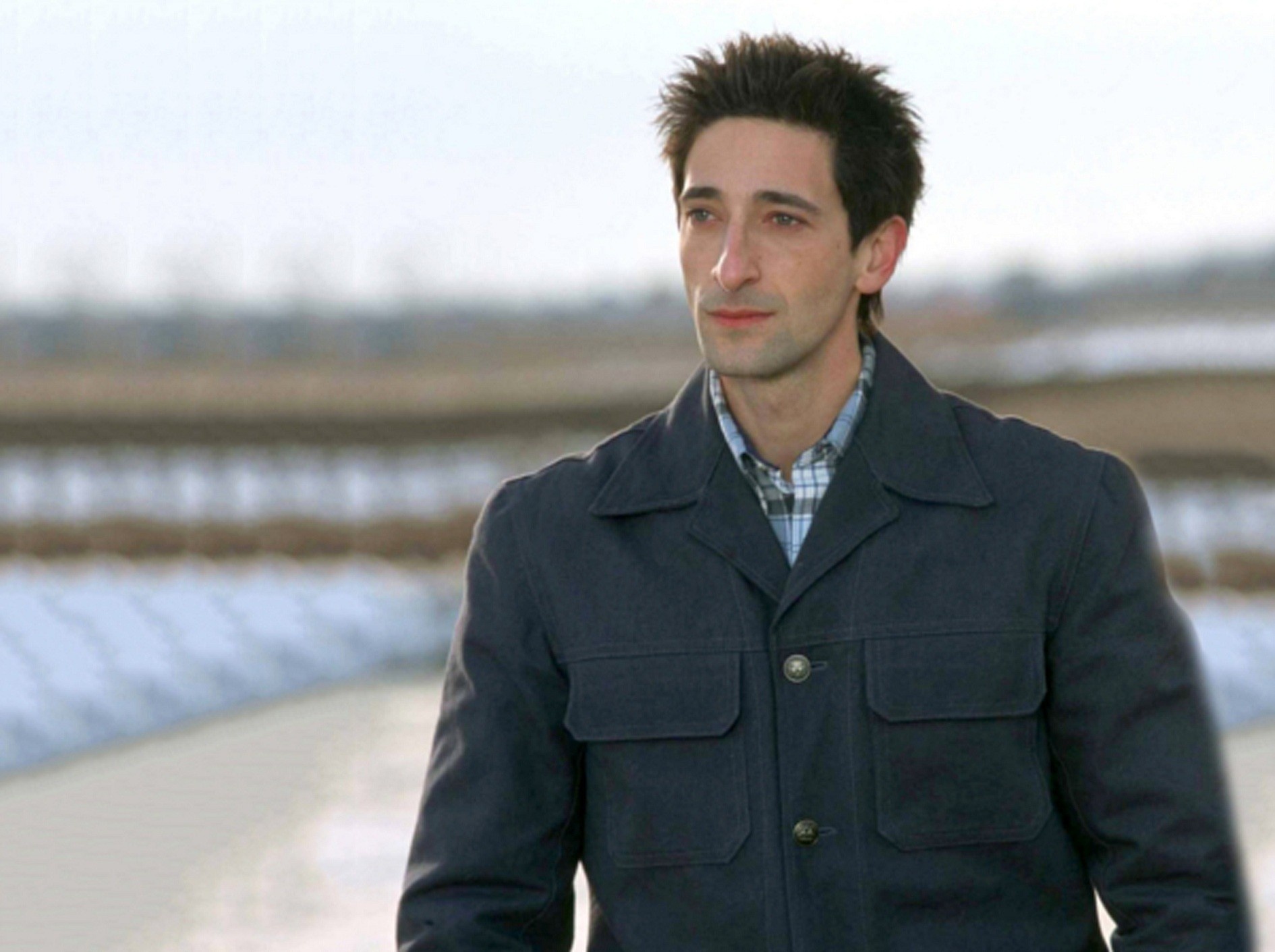Everyone desires to love and be loved. But when it comes to love, those who want to have true love must first accept themselves because only those who accept themselves can respect their hearts and live out their true selves.
In the movie “Pride and Prejudice” (2005) adapted from Jane Austen’s novel of the same name, the protagonist Elizabeth is a woman who lives her own life. It is her true acceptance of herself that allows her to have the love she wants.
The content of the film involves many aspects such as love, the gap between rich and poor, physical status, and the British rural culture at that time. I believe many people have made relevant explanations. Today’s article will talk about Elizabeth from a psychological perspective why she can get Mr. Darcy’s true love.
A Woman’s Best Talent Is Her Ability to Accept Herself
Although Elizabeth was not born into wealth, she was very confident.
Her self-confidence, in the eyes of many people, is a bit arrogant, as her sister Lydia said, “Sometimes, you are more arrogant than Mr. Darcy.” But from a psychological perspective, her confidence stems from her having a cohesive self.
The cohesive self is a concept proposed by American psychologist Kohut. It refers to a person’s self that has a centripetal force that can ensure that the various components of the mind converge inward to form a whole.
In other words, if a person forms a cohesive self, he will not care too much about the evaluation of the outside world. No matter what the external environment is, he will feel that “I am good.” This is a healthy sense of narcissism.
Elizabeth in the film has her own opinion and dares to say “no” to her cousin Collins who wants to marry her. Although her mother threatens to sever ties, she still refuses to compromise; she also dares to say “no” to the wealthy Catherine who comes to insult her. She can express her thoughts independently; she is very kind, and can go far to the Bentley house to visit her sister who has a cold, and is also anxious about her sister Lydia’s departure; more importantly, she is real and can directly refute opinions that she does not agree with. It can be said that Elizabeth’s various performances were “alternative” in the social environment that paid special attention to identity, power, and status at that time, and this was the main reason why Darcy liked her.
It can be seen that a woman who can accept herself will make choices based on her heart, and then live her true self in relationships with others.
A Woman Who Accepts Herself Will Respect Her Heart
A person who lives his or her own life will have the feeling that he can truly express his will and is convinced that his will can be realized.
This process is called “the birth of will”, which means that a child has successfully turned his attention from the inside to the outside world, and has also developed the ability to adapt to the outside world with a sense of subjectivity. This is very important to a child’s self. Formation is very important, and some adults have not yet developed this ability.
For example, some people have too much “will” and it is easy to cause conflicts, and many people are afraid of conflicts, so they learn to cover up their “will” to gain some space. But the scary thing is that while they are pretending, they completely forget their own “will”.
A person without “will” cannot live his own life.
Just like those who have no independent opinions and are afraid of authority, they will go against their hearts and choose to cover up their “will” to live in peace with others. However, such people lack motivation in life.
Elizabeth in the film is a person who respects her heart and can transform her “will” into the “power” of life.
She once said to Jane, “Marriage should not be controlled by money. Only true love can make me consider getting married.” This expression of “will” is exactly the view of love she adheres to.
Of course, Elizabeth’s ability to stick to her “will” is not only due to her courage but also to her father.
There are two scenes in the film where her father gives Elizabeth a lot of support to help her stick to her views on love:
- The first scene is when Cousin Collins proposes to Elizabeth, and her mother asks her father to force Elizabeth to agree to the marriage. But the last words Dad said were: “Your mother insists that you marry Mr. Collins. From today on, you must become a stranger to your father or mother. If you don’t marry him, your mother won’t meet you; if you marry him, I will never meet you.” For Elizabeth, this sentence meant understanding, support, and love.
- The second scene is after Elizabeth clears up her misunderstanding about Mr. Darcy and talks to her father before marrying Darcy. When Dad knew that Elizabeth loved Darcy, he said: “I can’t believe that there is someone worthy of you. Now it seems that I was wrong. I sincerely wish you all the best.” Through this passage, we can feel Dad’s love for Elizabeth and his support for her view of love.
It can be seen that a person who dares to express his will is not only related to his courage but also cannot do without the support and encouragement of his parents (at least one party). Their life is like a seed slowly growing into a towering tree. This is The unfolding process of life dynamics.
A Woman Who Lives Her Own Life Knows How to Maintain Her Own Boundaries
A person who can live out himself must be a person who can keep his boundaries.
Boundary awareness is the basis for a person to establish healthy interpersonal relationships. Only by forming a clear sense of boundaries can we guard our boundaries and interests and respect the boundaries and interests of others.
Sometimes, boundary awareness is even life-saving. Because when we lose our various boundaries without realizing it, we are encouraging others to continue to invade us, and the final invasion is to deprive ourselves of everything.
Elizabeth in the film is a person with a particularly strong sense of boundaries.
- First, she can be “firm without hostility” when rejecting others. Determination without hostility was proposed by Kohut, the founder of the self-psychology school. It means that I reject you and my attitude is very determined, but I am not hostile. For example, when Elizabeth rejects the proposal of her cousin Collins, she says, “I am honored by your proposal, but unfortunately I have no other choice but to decline. Mr. Collins, I am very serious, and you cannot make me happy, and I am not the kind of woman who can make you happy.” When Collins thought she wanted to use rejection to gain more attention and love, Elizabeth said, “Sir, I am not the kind of woman who deliberately plays tricks on gentlemen. Please understand me, I cannot promise you.” From this conversation, we see Elizabeth’s “resoluteness”, but not “hostility”. Later, Elizabeth went to her cousin’s house to play, which also illustrates this point.
- Second, she can dismiss the other person’s “bad” emotions while respecting the facts. When her sister Jane caught a cold at Bingley’s house, Elizabeth walked there to visit her sister. Bingley’s sister developed a sense of contempt for the woman with muddy water on her skirt, so she said to Mr. Darcy who was present, “She looks very rough.” Elizabeth felt that Sister Bingley was unfriendly, but she did not feel inferior because of it. Instead, she generously admitted that she did not know much about music, could not draw, and could not sing. Such “abnormal” behavior not only made Darcy see Elizabeth’s difference and dismissed Bingley’s sister’s “bad” mood. When leaving, Elizabeth specifically said, “Thank you sister for your warm company, which has benefited me a lot.”
- Third, she can distinguish very well between “this is my business and that is your business.” There is a particularly wonderful conversation in the film. It is in Elizabeth’s home when Lady Catherine talks to her alone. Lady Catherine wanted Elizabeth to “promise” not to be engaged to Darcy in front of her because she wanted to marry her daughter to Darcy. When Elizabeth did not agree to her request, Lady Catherine became angry and said that Elizabeth was “a selfish girl. This marriage had been arranged when they were young. How could a despicable woman be allowed to interfere with it, let alone your sister?” She also eloped with someone, and her marriage was just a fig leaf.” Finally, Elizabeth said firmly: “I cannot agree to this request. You have humiliated me from beginning to end. There is nothing more to say now. You must leave here immediately. Good night!”
Through the above dialogue, we see that Elizabeth is not only unafraid of power, but also dares to guard her own boundaries. Only when you can keep your boundaries can you be yourself.
Only a Woman Who Lives Her Own Life Can Have True Love
As we said before, Elizabeth in the film is a person who can live her own life. She started by feeling that she was a “good person”, but then realized that her confidence brought about being looked down upon by others, so she awakened her consciousness and decided to start changing. When she became “untouchable”, the results were not worse because her truth and bravery were more attractive.
- First, she knows what she wants. Elizabeth is a decisive person, especially when it comes to love, she knows what she wants. Although her friend Charlotte believes that “romance is not for everyone,” she still firmly believes that a marriage without love is not worth having. This is not to deny Charlotte’s approach, because everyone has different ideas and naturally different choices, and there is no right or wrong. Only choices made against one’s own will are wrong.
- Secondly, she can reflect and not become blind. Some people say that the arrogance in the film does not only refer to Darcy, but Elizabeth is also very proud. I agree with this statement, because whether arrogance is a strength or a weakness needs to be determined on a case-by-case basis. It is okay to assume that Elizabeth is an arrogant person because she does seem to be so. At an age where it is no longer convenient to reveal her age, she still refuses marriage proposals from men of marriageable age. Of course, she is proud. In addition, according to the “talent” defined by society at that time, Elizabeth was not that outstanding. However, her ability to reflect allows her to avoid blind optimism. She said to Jane, “I was once so blind,” and she said to her father, “I was so ignorant.” Such introspection allowed her to grow and no longer jump to conclusions easily.
Once again, she is brave enough to fight for what she wants. A person who can accept himself needs the courage not to be affected by the evaluation of others; a person who respects his inner thoughts needs the courage to face real problems; a person who wants to have true love needs the courage to stick to the principles of love. We can all see this courage in Elizabeth.
Conclusion
The novel “Pride and Prejudice” is Jane Austen’s masterpiece. It is known as a love classic and has been remade many times. However, whether it is a TV series version or a movie version, its core content remains unchanged.
Although many people no longer believe in love and feel that marriage is just a “form” and has no real “content,” Elizabeth, who lives her own life, shows us that love can still be romantic and true love can still be had.
The key is whether we can accept ourselves, respect our inner self, and live our true selves.




